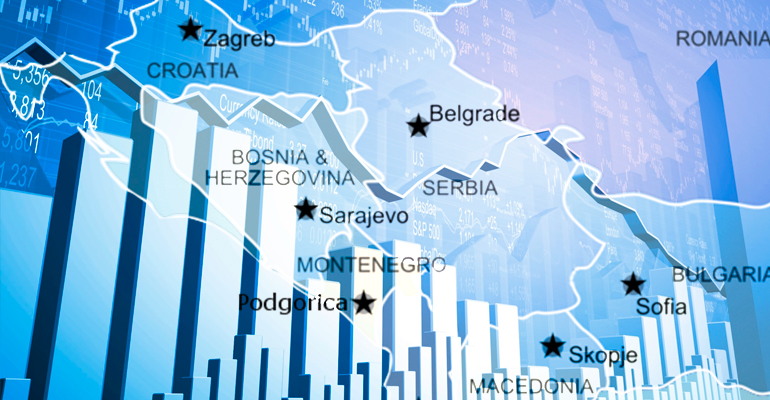

A race to the bottom is a socio-economic phrase used to describe a situation in which countries or companies try to compete in order to attract and retain economic activity and the latest data from the Center for Economic Analysis (CEA) in Macedonia suggests that the country is pushing the envelope on its regional counterparts. CEA recently published that seven companies doing business within Macedonian technological industrial development zones have have been granted a total of 56 million euros in state aid. In certain cases, the state aid granted amounted up to 47% of overall value of the investment. Vesna Garvanlieva, CEA representative, announced that, according to the the data, each new employment creates around 21,000 euros in costs to the Macedonian government. She also added that the economy didn’t experience significant benefits from these foreign investments hitherto, but that benefits may be greater in the years to come. The average salary in said zones is estimated at around 200 euros, which is below the average salary in Macedonia, Beta reported.
There are four technological industrial development zones in Macedonia, Skopje 1, Skopje 2, Štip and Tetovo, with seven more planned, so that the equal economic development of all regions is achieved. Some of the benefits offered to investors in these zones are reduced tax and customs duties, no labor restrictions, no municipality taxes, symbolic land lease rates and direct state aid in the amount of up to 500,000 euros.
Viktor Mizo, director of the technological industrial development zones in Macedonia, while discussing the advantages of Macedonia as an investment location with Al Jazeera, highlighted the following: “The state builds the entire infrastructure, meaning roads, access to electricity, water and other public utilities. Even more important is that the government provides a long-term lease for up to 99 years, whereas a hectare costs only 1.000 EUR per year”.
Macedonia adopted the Turkish investment incentive model seven years ago, and hundreds of millions of euros have been spent so far for promotion and attracting FDIs. „At first we did not consider Macedonia. However, someone mentioned it, we came here and we saw what we needed – location that’s close to the airport and a big city, as well as access to a large plot of land in the industrial zone. After some consideration, the decision was made“, said Jatin Thakrar, the Managing Director of Johnson Matthey in Macedonia, according to Al Jazeera.
All the aforementioned indicates that the regional battle for foreign investments is intensifying. For the sake of comparison, there are 13 free zones in Croatia – sea port-based located at Pula, Rijeka, Split and Ploče and other strategically located zones in Krapina-Zagorje, Kukuljanovo, Osijek, Ribnik, Slavonski Brod, Split-Dalmacija, Varaždin, Vukovar and Zagreb. Eight business zones have been established so far in Montenegro, whereby the investors have started their business in those located in Berane, Cetinje, Nikšić and Podgorica. Free zones in Bosnia and Herzegovina are located in Vogošća, Visoko, Hercegovina Mostar and Slobomir Bijeljina.
There are 14 active free zones in Serbia, regional leader in this regard, including: FZ Pirot, FZ Subotica, FZ Zrenjanin, FZ Novi Sad, FAS FZ Kragujevac, FZ Šabac, FZ Užice, FZ Smederevo, FZ Kruševac, FZ Svilajnac, FZ Apatin, FZ Vranje, FZ Priboj and FZ Beograd. Investors in these zones may benefit from a preferential tax regime, i.e. VAT and customs exemptions for raw materials intended for production of goods which are to be exported, equipment and construction materials, as well as exemptions from certain local fees and taxes. Import to and export from the free zones is unlimited and the companies can lease business premises, workshops and warehouses under favorable conditions. The revenue yielded in a free zone may be transferred to any country, including Serbia, without prior permission and free from any customs duties and taxes. Much like in the case of Macedonia, the one-stop shop system should provide for the efficient administration in the free zones. Each zone has a Customs Administration Office that enables for a simple and fast customs procedures.
Last but not least, it is worth mentioning that following the recent establishment of the Serbian Development Agency (RAS), which replaced SIEPA, work on a new subsidies regulation has kicked off. It remains to be seen how the RAS will respond to this subsidies race to the bottom while remaining on top of EU integration requirements.